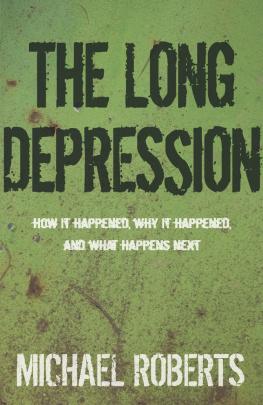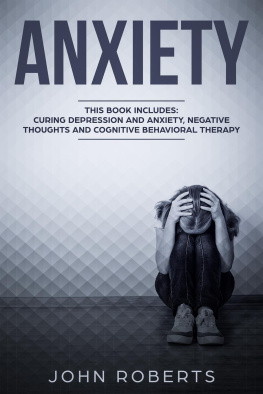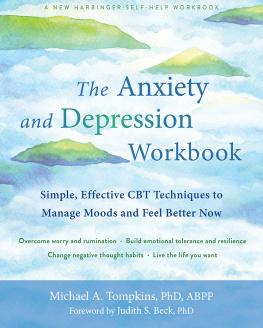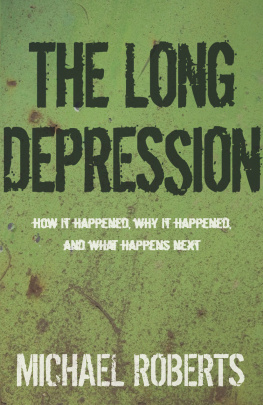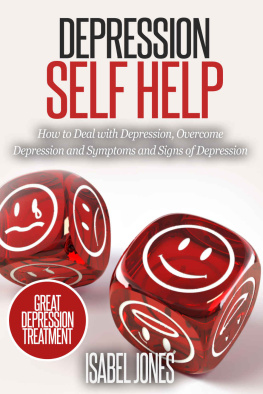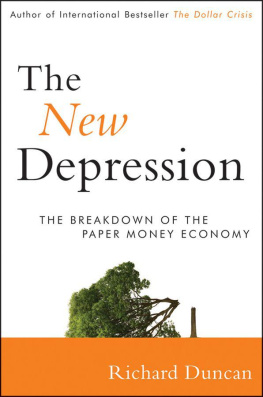Michael Roberts - The Long Depression
Here you can read online Michael Roberts - The Long Depression full text of the book (entire story) in english for free. Download pdf and epub, get meaning, cover and reviews about this ebook. year: 2016, publisher: Haymarket Books, genre: Politics. Description of the work, (preface) as well as reviews are available. Best literature library LitArk.com created for fans of good reading and offers a wide selection of genres:
Romance novel
Science fiction
Adventure
Detective
Science
History
Home and family
Prose
Art
Politics
Computer
Non-fiction
Religion
Business
Children
Humor
Choose a favorite category and find really read worthwhile books. Enjoy immersion in the world of imagination, feel the emotions of the characters or learn something new for yourself, make an fascinating discovery.
- Book:The Long Depression
- Author:
- Publisher:Haymarket Books
- Genre:
- Year:2016
- Rating:5 / 5
- Favourites:Add to favourites
- Your mark:
- 100
- 1
- 2
- 3
- 4
- 5
The Long Depression: summary, description and annotation
We offer to read an annotation, description, summary or preface (depends on what the author of the book "The Long Depression" wrote himself). If you haven't found the necessary information about the book — write in the comments, we will try to find it.
Setting out from an unapologetic Marxist perspective, The Long Depression argues that the global economy remains in the throes of a depression. Making the case that the profitability of capital is too low, and the debt built up before the Great Recession too high, leading radical economist Michael Roberts persuasively presents his case that this depression will persist until the profitability of capital is restored through yet another slump.
The Long Depression — read online for free the complete book (whole text) full work
Below is the text of the book, divided by pages. System saving the place of the last page read, allows you to conveniently read the book "The Long Depression" online for free, without having to search again every time where you left off. Put a bookmark, and you can go to the page where you finished reading at any time.
Font size:
Interval:
Bookmark:

Introduction
Getting Depressed
Recessions are common; depressions are rare. As far as I can tell, there were only two eras in economic history that were widely described as depressions at the time: the years of deflation and instability that followed the Panic of 1873 and the years of mass unemployment that followed the financial crisis of 192931. Neither the Long Depression of the 19th century nor the Great Depression of the 20th was an era of nonstop declineon the contrary, both included periods when the economy grew. But these episodes of improvement were never enough to undo the damage from the initial slump, and were followed by relapses. We are now, I fear, in the early stages of a third depression. It will probably look more like the Long Depression than the much more severe Great Depression. But the costto the world economy and, above all, to the millions of lives blighted by the absence of jobswill nonetheless be immense.
Paul Krugman
Why Did We Miss It?
As the Great Recession unfolded, people asked how it happened and why. In the United Kingdom, we suffer a long-standing monarchy. England had a republic briefly, for only eleven years between 1649 and 1660, after executing the monarch at the time. But now Britain has a queen who has been around a long time. At the height of the crisis in November 2008, she visited the London School of Economics, a major university with a high reputation. She asked the eminent economists bowing before her: why had nobody noticed that the credit crunch was on its way? This caused consternation among the mainstream economics world: even the queen was questioning their skills! Robin Jackson, chief executive and secretary of the British Academy, the prestigious scientific institute, rushed out an official letter in reply, admitting that the great and good in officialdom and mainstream economics did not understand the risks.
Indeed, before 2007, no official strategist of economic policy forecast any crisis. The mainstream economists in prestigious institutions were no better than government officials in forecasting the Great Recession. Indeed, they were worse, because they really were supposed to know.
The doyen of the neoclassical school, Robert Lucas, confidently claimed back in 2003 that the central problem of depression-prevention has been solved. Leading Keynesian Olivier Blanchard, former chief economist at the International Monetary Fund (IMF), told us as late as 2008 that the state of macro is good! He meant macroeconomics theory as a guide to what is happening in a modern economy.
Forecasting: The Power of the Aggregate
This book offers an ambitious explanation of recent economic events and also, most will say, an overly ambitious forecast or prediction of what is going to happen. Futurology is a popular pastime among authors of world views. Economic forecasting is a particular nightmare, as the Great Recession proved.
But we cannot throw up our hands in a gesture of failure. As Marx said, we must try to apply scientific methods to looking beneath the surface of things and ascertain the causal processes underneath. By succeeding in that, we can give our conclusions some predictive power. Indeed, prediction is necessary to confirm or falsify our conclusions. It must not be shied away from.
Statistical analysis is much better at forecasting things than hunches or human intuition. Everything is not entirely random. Some claimed t hat the Great Recession was a random event, a chance in a billion, as even the most unlikely thing can happen under the law of chance. The example is that it was assumed there were only white swans until Europeans got to Australia and found black ones. It was the unknown unknown, to quote US President George W. Bushs neo-con Secretary of State Donald Rumsfeld. The most unlikely thing can happen, but you cannot know everything. The Great Recession was one such event that could not have been predicted and therefore bankers, politicians, and above all economists were not at fault. This was the excuse used by bankers when giving evidence to the US Congress and to the UK Parliament.
But modern statistical methods do have predictive powerall is not random. In his book, Nate Silver offers detailed case studies from baseball, elections, climate change, the financial crash, poker, and weather forecasting. The essence of the Bayesian approach is to provide a mathematical rule explaining how you should change your existing beliefs in the light of new evidence. In other words, it allows scientists to combine new data with their existing knowledge or expertise.
Bayess law also shows two other things that are useful to remember in economic analysis. The first is the power of data or facts over theory and models. Neoclassical mainstream economics is not just voodoo economics because it is ideologically biased, an apology for the capitalist mode of production. In making assumptions about individual consumer behavior, about the inherent equilibrium of capitalist production, and so on, it is also based on theoretical models that bear no relation to reality: the known facts or priors.
In contrast, a scientific approach would aim to test theory against the evidence on a continual basis, not just falsify it (as Karl Popper would have it ) but also to strengthen its explanatory powerunless a better explanation of the facts comes along. Isaac Newtons theory of gravity explained very much about the universe and was tested by the evidence, but then Albert Einsteins theory of relativity came along and better explained the facts (or widened our understanding of things that could not be explained by Newtons laws). In this sense, Marxist method is also scientific. Marx begins with concrete phenomena from which he abstracts real forces (as theory) and then returns to the concrete (using facts to show this reality). The reality then strengthens the explanatory power of the theory by modifying it.
The second thing we can glean from the use of Bayess law is the power of the aggregate. The best economic theory and explanation come from looking at the aggregate, the average, and their outliers. Data based on a few studies or data points provide no explanatory power. That may sound obvious, but it seems that many political pundits were prepared to forecast the result of the last US presidential election based on virtually no aggregated evidence. Its the same with much of economic forecasting. Sure, what happened in the past is no certain guide to what may happen in the future, but aggregated evidence over time is much better than ignoring history.
If economists want to understand the causes of financial and economic crisis, they need to look away from individual behavior or models based on representative agents and instead look to the aggregate: from the particular to the general. They need to turn back from deductive a priori reasoning alone toward history, the evidence of the past. History may not be a guide to the future, but speculation without history is even less based in reality. Economists need theories that can be tested by the evidence. In an appendix, I deal at greater length with the failure of Keynesian economic theory to do that.
Mainstream economics does not seem to have any predictive power. Ive been forecasting for 50 years and I had not seen any improvement in our capability of forecasting, said the great maestro, Alan Greenspan. This book attempts to link theory with data, provide a causal explanation of what has been happening in the world economy since 2007, and make some predictions about what will happen.
Indeed, I made a stab at it my previous book, The Great Recession , when I wrote as early as 2005 that There has not been such a coincidence of cycles since 1991. And this time (unlike 1991), it will be accompanied by the downwave in profitability within the downwave in Kondratiev prices cycle. It is all at the bottom of the hill in 20092010! That suggests we can expect a very severe economic slump of a degree not seen since 19802 or more. That prediction was not far off, given that the bottom of the Great Recession was in mid-2009.
Font size:
Interval:
Bookmark:
Similar books «The Long Depression»
Look at similar books to The Long Depression. We have selected literature similar in name and meaning in the hope of providing readers with more options to find new, interesting, not yet read works.
Discussion, reviews of the book The Long Depression and just readers' own opinions. Leave your comments, write what you think about the work, its meaning or the main characters. Specify what exactly you liked and what you didn't like, and why you think so.

